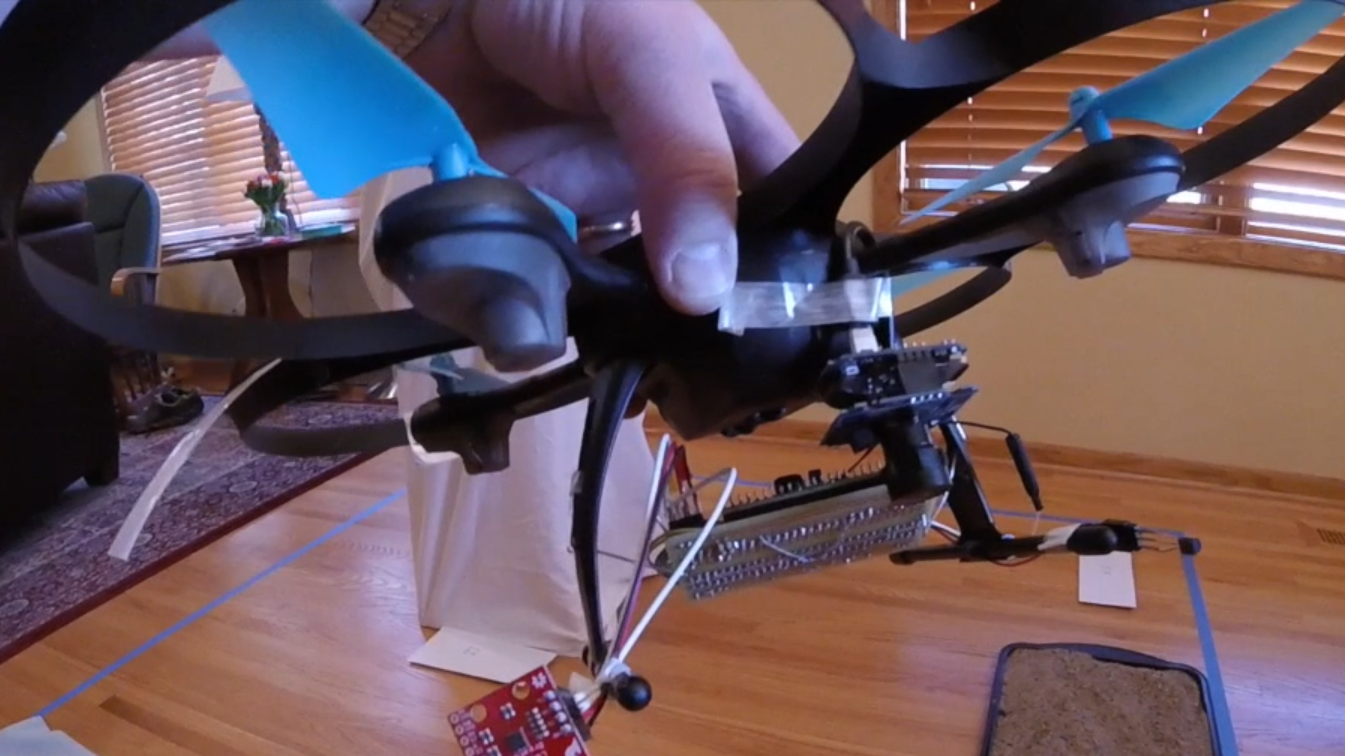** Preamble **
Here is a “doable in the days of COVID-19” student competition you might be interested in. Participants will learn about drones, soldering, microcontroller programming, electronic sensors, and more. If you have questions, contact Thelma Berquo tberquo@cord.edu at Concordia College – Moorhead. First steps are (1) sign up a faculty adviser no later than the end of September, (2) assemble a team of students (see details below about expected team size and demographics), and (3) have the faculty adviser and the team members (or at least some student team members) attend a remote “kick-off” event – perhaps about 2 hours long – some evening in mid-October. After that there will be regular videocons (perhaps about every second week) between team representatives and organizers through the rest of October until the challenge ends in late March 2021.
** Full Announcement **
The Minnesota Space Grant Consortium (MnSGC) is pleased to announce the “MnSGC 2020-2021 Quadcopter Exploration-Flying Challenge” which (we believe) can be accomplished by teams of students working mostly-remotely from one another. In this “exploration-flying” challenge, students will learn to fly a Blue Heron (toy) drone then design a light-weight microcontroller-based sensor suite for it to carry to explore a “mystery” area (both walking through and flying through) on their own campus. Here is a (remotely-filmed) 7-minute video showing one student team’s solution to this type of challenge, but only walking through, not actually flying through, an exploration area with hot/cold/magnetic features. (See link at bottom of page for example video.)
To participate, first identify a faculty adviser (to supervise activities and ensure COVID-19 restrictions are followed – this person does not need to be a drone or electronics expert). Then assemble a team of 4 to 6 students (with at least some female and/or underrepresented minority members, please). Each team will be provided with a drone (~$100), some useful starter parts (~$150), and instruction about how to use the starter parts. A parts list will be provided. Each team will need access to soldering equipment (not provided centrally – might cost ~$100 it you need to purchase it) plus a laptop for microcontroller programming – software is free. Teams will also benefit from at least a small budget with which to purchase spare/additional/custom parts, if they want to go beyond the basic ones that are provided, and possibly a dedicated build space on campus (if allowed). Schools with more than 6 interested students may field additional teams (on their own dime), possibly sharing the same faculty adviser.
Over the course of the school year teams will be required to produce several relatively-short reports, at least one in writing, at least one by pre-recorded video, and (hopefully) at least one by live video before a panel of evaluators. Dates and details about reporting will be provided later. The challenge will culminate with the adviser assembling a specific “mystery” area on campus then having the student team “explore” it with their sensor suite, taking photos/video for mapping and making measurements of environmental conditions. The date for this “final fly-off” event (done essentially simultaneously at the participating institutions) will be near the end of March 2021 so that final reports can be finished by mid-April, before spring semester is over.
If you have questions, or to sign up your school to participate (before the end of September – first come, first served), contact Thelma Berquo tberquo@cord.edu at Concordia College – Moorhead.
Related Links
